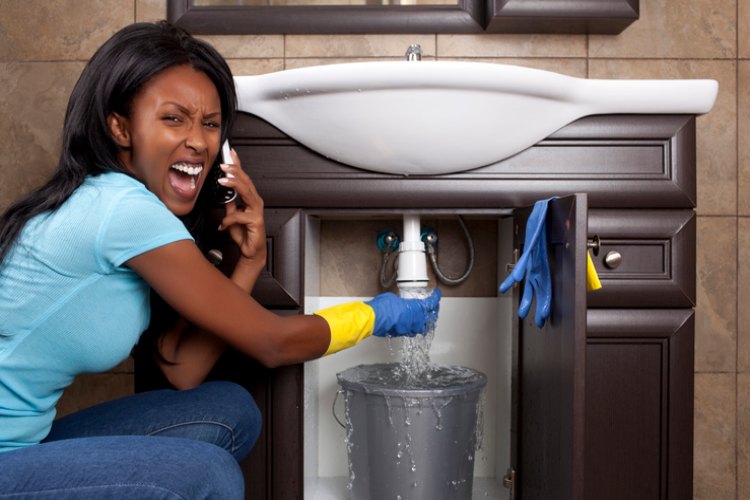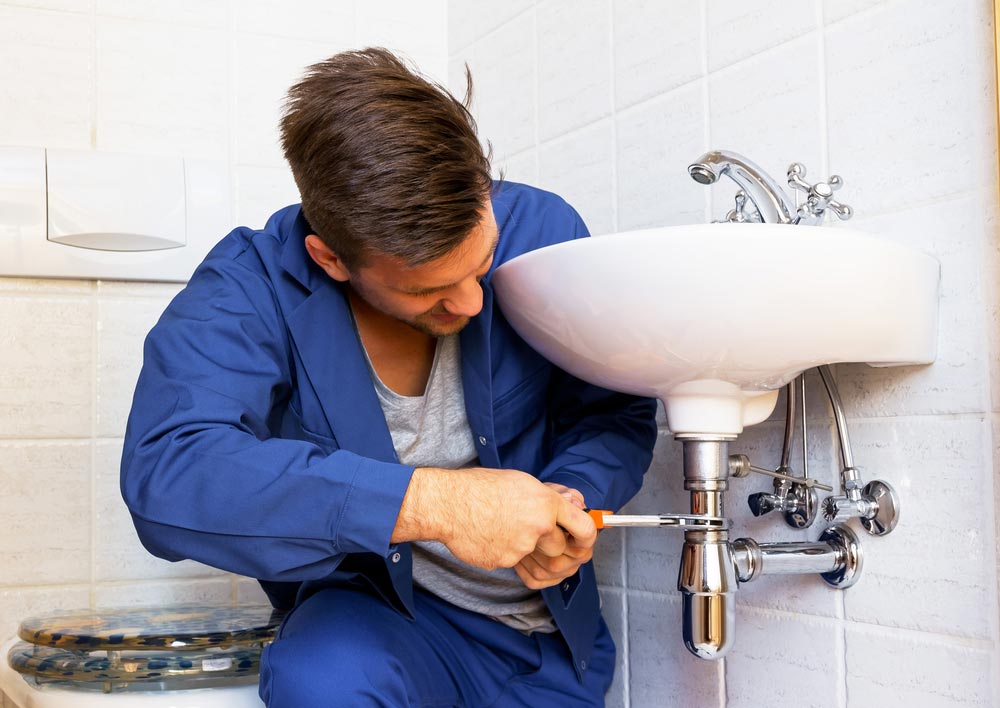Emergency Solutions to Use Until Professional Help Arrives
Emergency Solutions to Use Until Professional Help Arrives
Blog Article
Are you trying to locate answers involving Plumbing Emergencies: Tips on What To Do Before?

Plumbing emergency situations can strike any time, creating stress and prospective damages to your home. Whether it's a ruptured pipeline, a clogged up drain, or a leaky tap, recognizing just how to handle the circumstance up until an expert plumbing professional gets here can conserve you from further complications. This short article provides vital emergency situation pipes ideas to aid you alleviate damages and regain control during a plumbing dilemma.
Shut off the Supply Of Water
The primary step in any kind of pipes emergency situation is to shut off the supply of water. For localized problems, such as a dripping tap or toilet, turn off the valve near the component. When it comes to a significant leakage or burst pipe, locate your home's primary water shut-off shutoff and transform it off quickly. Understanding the place of these valves in advance can conserve beneficial time throughout an emergency situation.
Address Small Leaks with Short-term Fixes
Little leaks can swiftly end up being considerable troubles if left uncontrolled. Make use of these short-lived fixes till expert aid gets here:
While these repairs aren't long-term, they can assist lessen water loss and damages.
Unclog Drains Safely
A clogged drainpipe can be an irritating and messy problem. Right here's exactly how to tackle it:
If these methods do not work, prevent using extreme pressure, as it may worsen the blockage.
Take Care Of Overflowing Toilets
An overflowing commode can trigger prompt mayhem. Below's what you ought to do:
Shut down Your Water Heater
In specific emergency situations, such as a ruptured pipe, it's smart to shut down your water heater. This stops getting too hot or damage to the system when water quits flowing. Turn off the power supply to the water heater (electric or gas) and allow it cool to avoid prospective threats.
Temporarily Stop a Ruptured Pipeline
A ruptured pipe can result in considerable water damages in minutes. To reduce the problem:
Call a specialist plumber immediately to address the problem permanently.
Handle Frozen Pipes Meticulously
In colder environments, icy pipes are a common emergency. If you think a frozen pipe:
Prevent More Damages
Taking quick activity to reduce damages can conserve you money and time in the future. Right here's how:
. Have an Emergency Plumbing Package
Prepare a standard plumbing emergency package to take care of small issues effectively. Your package must include:
Having these devices available can make a substantial distinction in your ability to manage emergency situations.
Know When to Call a Professional.
While quick fixes can aid briefly, certain pipes problems require prompt expert attention. Call a plumber if:.
Quickly speaking to a professional makes certain the problem is resolved appropriately and avoids additional complications.
Final thought.
Pipes emergency situations can be overwhelming, yet with the best expertise and tools, you can take care of the situation successfully till help shows up. By turning off the supply of water, resolving small leakages, and making use of short-term repairs, you can decrease damage and maintain your home safe. Remember, these suggestions are short-term remedies; constantly consult a licensed plumbing technician to take care of the root cause of the issue. Prep work and fast thinking are your finest allies in any kind of pipes emergency.
Top Tips for Emergency Plumbing Leak Repairs
Identifying the Leak Source
To properly address a plumbing leak, begin by locating the source using a flashlight and inspecting visible pipes for any signs of water accumulation or dripping. Look for water stains, mold growth, or musty odors which can indicate hidden leaks. Follow the water trail to pinpoint the origin of the leak. Check under sinks, around appliances, and near water heaters as these are common areas for leaks to occur.
If the leak is coming from a visible pipe joint, tightening the connection may solve the issue. Use a wrench to secure the joint without over-tightening, which could cause damage. For small cracks or holes, a temporary fix can be applied using epoxy putty or a pipe clamp until a permanent solution is implemented.
Remember to turn off the water supply before attempting any repairs to prevent further damage. Once the leak is identified, take necessary steps to either fix it yourself or contact a professional plumber for assistance.
Shutting Off the Water Supply
Before initiating any plumbing repairs, make sure you shut off the water supply to prevent further leakage. Locate the main shut-off valve for your property. This valve is typically found near the water meter or where the main water line enters your home. Turn the valve clockwise to shut off the water flow. If you’re dealing with a localized leak, like a sink or toilet, you can also shut off the water supply to that specific fixture by using the individual shut-off valves located underneath or behind the fixture.
Shutting off the water supply is essential to prevent more water from entering the system and causing additional damage. By taking this initial step, you can minimize the extent of the leak and prevent potential flooding in your home. Remember to inform everyone in the household about the water shut-off location in case of future emergencies. Once the water is off, you can proceed with identifying and addressing the leak source to resolve the issue effectively.
Temporary Leak Containment
If you’ve successfully shut off the water supply, the next step is to contain the leak temporarily to prevent further damage. Start by locating the source of the leak. Check for any visible cracks, holes, or burst pipes. Once identified, use materials like duct tape, pipe clamps, or rubber patches to cover the damaged area. For smaller leaks, a bucket or container can be placed underneath to catch dripping water.
If the leak is coming from a pipe joint, tightening the connection with a wrench might help reduce the leakage temporarily. Remember, these are just temporary solutions to prevent immediate damage. It’s essential to contact a professional plumber to assess and fix the issue permanently.
While containing the leak, keep an eye on the affected area for any signs of worsening. If the leak worsens or you’re unable to contain it effectively, don’t hesitate to contact emergency plumbing services for immediate assistance. Taking quick action to contain the leak can help minimize water damage and save you from costly repairs in the long run.
Contacting Emergency Plumbing Services
When facing a plumbing emergency, promptly reach out to professional plumbing services for immediate assistance. Contacting emergency plumbing services is essential to prevent further damage to your property. These professionals have the expertise and tools to address the issue quickly and effectively. When you call for emergency plumbing services, provide as much detail as possible about the leak, its location, and any steps you have taken to contain it. This information will help the plumbers assess the situation and come prepared to tackle the problem.
Ensure that you have the contact information for emergency plumbing services readily available, so you can act swiftly in case of a leak. Many plumbing companies offer 24/7 emergency services, so don’t hesitate to reach out, even if the leak occurs outside regular business hours. By contacting professional plumbers promptly, you can mitigate the damage caused by the leak and restore the functionality of your plumbing system efficiently.
Post-Repair Leak Prevention
To prevent future leaks after repairs, conduct a thorough inspection of all plumbing connections. Start by checking for any signs of corrosion, rust, or wear on pipes, fittings, and fixtures. Tighten any loose connections and replace any damaged parts to guarantee a secure fit. Additionally, inspect the seals around toilets, sinks, and tubs to make sure they’re intact and not deteriorating.
Consider installing water leak detectors in key areas of your home, such as near water heaters, under sinks, and around appliances like washing machines and dishwashers. These detectors can alert you to leaks early on, helping you address them before they cause significant damage.
Regularly monitor your water bill for any unexpected spikes, as this could indicate a hidden leak. If you notice a sudden increase in water usage without a corresponding change in your habits, it’s crucial to investigate the issue promptly.
https://callprofessorplumb.com/articles/top-tips-for-emergency-plumbing-leak-repairs/

We are very intrigued by Expert Tips for Emergency Plumbing Repairs and I am praying you enjoyed reading the blog post. Those who appreciated our page kindly be sure to pass it around. Thank you for your time. Don't hesitate to come by our website back soon.
Schedule Your Service Report this page